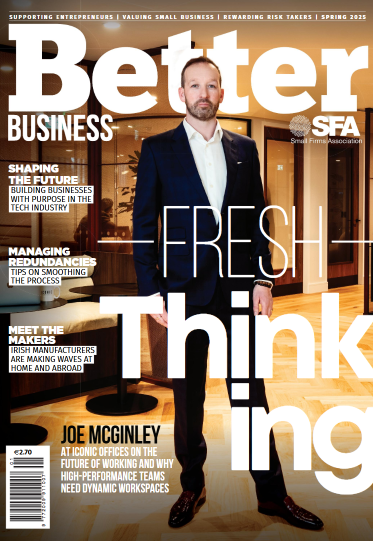Demand for flexible workspace in Ireland and across the world saw record growth in 2017, according to new research from real estate firm Cushman & Wakefield. The firm’s co-working 2018 report has revealed an increase in demand for co-working or serviced office accommodation within the Dublin office market, with the sector accounting for 8 per cent of office leasing activity in Dublin’s central business district in 2017, compared to just 0.7 per cent of leases in 2016. 2018 is expected to see further expansion by the sector as a considerable amount of space is currently reserved or signed to occupiers such as WeWork, Regus, The Office Group and Iconic Offices.
These trends reflect those of Europe in general, as burgeoning tech centres have led to strong uptake of flexible workplaces. Berlin is expected to be a beneficiary of Brexit as a home for start-ups and WeWork has huge expansion plans for up to 1,000,000 sq ft in the city. The success of Stockholm’s tech sector has led to declining vacancy rates, coupled with high rents, which will help the growth of the flexible office market.
Report author Elaine Rossall, a Partner in Cushman & Wakefield’s EMEA Research & Insight team, said: “Flexible workspaces are now a vitally important part of the European economy, and an increasingly familiar presence in our cities. The popularity of co-working has seen demand continue to grow exponentially across the continent. Amsterdam is a great example as it has one of the highest proportions of independent workers in the EU, with an entrepreneurial and creative culture that is nurtured by a flexible workplace.”
London has cemented its position as the global leader for flexible workplaces, easily outstripping New York in terms of both space and number of operations. Since 2012, flexible workplace leasing has represented an average of 2.9 per cent of the market in Manhattan, compared to 10.6 per cent in London.




